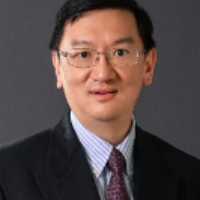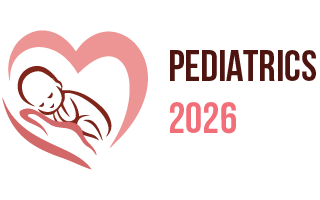4th International Conference on
Pediatrics & Neonatology
August 13-14, 2026 | Barcelona, Spain

Address: Avinguda Del Maresme 78 Ronda De Dalt Exit 15, 08940 Comellà de Llobregat, Barcelona, Spain
Pediatrics 2026

The Chinese University of Hong Kong, Hong Kong
Abstract:
Food allergy is the second wave of allergy epidemic that happens within the past two decades, and most paediatric patients react to the ‘big 8 foods’ including cow’s milk, hen’s egg, wheat, soy, peanut, fish, shellfish and tree nuts. The diagnosis of food allergy is conventionally made by suggestive clinical history and positive allergy tests with either skin prick test or serologic measurement of specific IgE. However, these allergy tests lack sufficient diagnostic accuracy. Inappropriate food avoidance will subject young children to compromised nutritional intake and patients and their families to psychosocial stresses and impaired quality of life. There is thus an unmet need to identify accurate diagnostic approaches for food allergy. Over the past two decades, improved knowledge about the full allergen spectra of many common foods made it possible to determine the detailed host sIgE responses. This component-resolved diagnosis characterized the unique IgE sensitization profiles of individual patients that substantially enhanced the diagnostic accuracy for food allergy. My team at CU Paediatrics characterized fish allergens of salmon (seawater fish) and grass carp (freshwater fish) and evaluated the sensitization pattern for fish from Chinese and Japanese populations. Parvalbumin was the major allergen for both fish species showing an overall sensitization rate of 74.7%, followed by collagen (38.9%), aldolase (38.5%) and enolase (17.8%). While such findings can be used to improve fish allergy diagnosis, my group also reported that about half of fish-allergic children in Hong Kong could tolerate some seawater fish species such as tuna, halibut and salmon. Their selective fish tolerance was related to the parvalbumin content in meat, and based on which my group proposed a “fish allergenicity ladder” that inform about possible fish reintroduction in fish-allergic patients. In conclusion, our recent findings on allergen compositions and abundance among different fish and evaluation of patients’ specific IgE concentrations facilitate the enhanced management of fish-allergic patients.
Biography:
Professor Leung graduated from The Chinese University of Hong Kong in 1992, and he received subspecialty training on Immunology and Allergy in the Hospital for Sick Children in Toronto, Ontario, Canada in 1997-1998. Professor Leung is currently a professor in Department of Pediatrics at The Chinese University of Hong Kong, and a visiting professor in the Central South University in mainland. He is Immediate Past President of Hong Kong Society for Pediatric Immunology, Allergy and Infectious Diseases. His main research interests include natural history, novel diagnostics and host-microbe interactions for allergic diseases. He published more than 420 peer-reviewed journal articles. Professor Leung graduated from The Chinese University of Hong Kong in 1992, and he received subspecialty training on Immunology and Allergy in the Hospital for Sick Children in Toronto, Ontario, Canada in 1997-1998. Professor Leung is currently a professor in Department of Pediatrics at The Chinese University of Hong Kong, and a visiting professor in the Central South University in mainland. He is Immediate Past President of Hong Kong Society for Pediatric Immunology, Allergy and Infectious Diseases. His main research interests include natural history, novel diagnostics and host-microbe interactions for allergic diseases. He published more than 420 peer-reviewed journal articles.
Professor Leung graduated from The Chinese University of Hong Kong in 1992, and he received subspecialty training on Immunology and Allergy in the Hospital for Sick Children in Toronto, Ontario, Canada in 1997-1998. Professor Leung is currently a professor in Department of Pediatrics at The Chinese University of Hong Kong, and a visiting professor in the Central South University in mainland. He is Immediate Past President of Hong Kong Society for Pediatric Immunology, Allergy and Infectious Diseases. His main research interests include natural history, novel diagnostics and host-microbe interactions for allergic diseases. He published more than 420 peer-reviewed journal articles. Professor Leung graduated from The Chinese University of Hong Kong in 1992, and he received subspecialty training on Immunology and Allergy in the Hospital for Sick Children in Toronto, Ontario, Canada in 1997-1998. Professor Leung is currently a professor in Department of Pediatrics at The Chinese University of Hong Kong, and a visiting professor in the Central South University in mainland. He is Immediate Past President of Hong Kong Society for Pediatric Immunology, Allergy and Infectious Diseases. His main research interests include natural history, novel diagnostics and host-microbe interactions for allergic diseases. He published more than 420 peer-reviewed journal articles.
